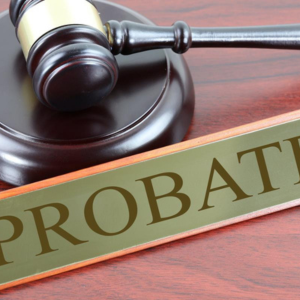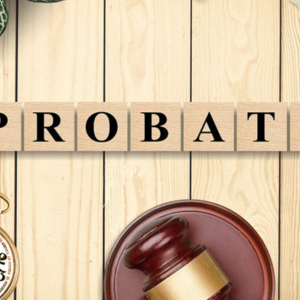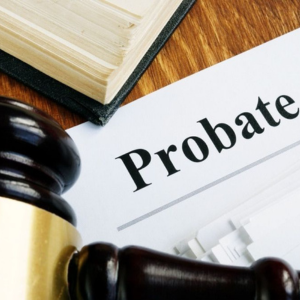
Why Consider Selling Probate Real Estate in California?

Selling a probate house in California can be wise for beneficiaries and estate executors. Real estate is among the assets that the thorough California probate process helps guarantee their orderly transferability. A California probate property sale can effectively distribute inheritance and help pay debts. California’s executors must properly negotiate probate sale rules to maximize value and keep within the law. Since it affects timing and pricing, knowing how the real estate market impacts probate transactions is essential.
What are the Benefits of Selling a Probate Property?
Selling probate real estate in California offers several key benefits:
- Liquidity: Turning real estate into cash provides immediate funds for settling the estate.
- Asset Distribution: Simplifies the process of distributing inheritance among beneficiaries.
- Estate Settlement: Helps resolve the estate’s matters more smoothly.
- Professional Assistance: Working with a probate real estate professional in California ensures expert guidance through the complex process.
How Does the Real Estate Market Impact Probate Sales?

The real estate market in California significantly affects probate sales. Market trends, supply-demand dynamics, and economic conditions influence property value and buyer interest. Understanding these factors helps executors and agents set realistic expectations for probate sales.
Setting the Right Price for California Probate Properties
Setting the right price for a probate house in California is crucial for a successful sale. Property appraisals and a competitive pricing strategy help align with market value. This approach can speed up real estate transactions in California, making them more appealing to potential buyers.
What is the Process for Determining Market Value?
To accurately determine market value, follow these steps:
- Appraisal: Get a professional evaluation of the property.
- Comparative Market Analysis (CMA): Compare recently sold properties in the area.
- Valuation Methods: Use different approaches like cost, market, and income methods.
- Realtor Input: Seek advice from experienced realtors familiar with the local market.
- Neighborhood Analysis: Consider the property condition and neighborhood features.
How Does Pricing Influence the Sale Timeline?
Pricing strategy plays a big role in the timeline of a probate sale. A well-set price encourages buyer urgency and boosts market competitiveness, reducing time on the market. Proper pricing enhances sellability and improves offer reception.
Essential Documents for California Probate Real Estate Transactions

Completing a probate real estate transaction in California requires certain legal documents. These include probate court documents, title deeds, and property disclosure forms. Having letters testamentary and the will ready helps streamline the process and ensures compliance with California real estate laws.
What Paperwork is Necessary for a Smooth Transaction?
For a seamless probate property sale, the following documents are needed:
- Probate Court Approval: Secure the court’s permission for the sale.
- Title Deed: Verify ownership and ability to transfer.
- Property Disclosure Forms: Offer transparency about the property’s condition.
- Legal Compliance Checklist: Follow California probate rules.
How Can Missing Documents Affect the Probate Sale?
Missing documents can cause serious issues, such as delays, legal disputes, and possible transaction failures. Addressing any gaps quickly is critical to avoid complications in the probate process. Taking corrective actions promptly can help ensure a successful sale.
By following these guidelines, executors and beneficiaries—especially an Executor of Will Sell Property—can effectively manage the selling of probate real estate in California. For more insights or assistance, contact a specialized probate real estate professional.
How to Choose a Real Estate Professional Specializing in California Probate Sales

Selecting the right real estate professional for probate sales in California is important. A probate real estate professional should know the legal processes unique to these transactions. Consider these factors:
- Experience and Expertise: Find agents with a strong track record in probate realty in California. They should understand the state’s probate laws and have experience with similar cases.
- Reputation and Reviews: Check client reviews and testimonials. Positive feedback from past clients reflects an agent’s professionalism and success.
- Understanding of Probate Process: The agent should know the details of the probate court in California. They can guide you through each step and help avoid delays or problems.
- Communication Skills: A good probate real estate professional communicates well with everyone involved, including the estate executor in California, ensuring a smooth process.
Carefully evaluating candidates will make managing a probate sale easier and more successful.
The Role of Executors in California Probate Real Estate Transactions
In California, executors have a key role in probate real estate transactions. Appointed by the probate court, they have several important duties:
- Managing Estate Assets: Executors value and manage the deceased’s property to preserve it for the beneficiaries.
- Handling Legal Obligations: Executors handle debts, taxes, and other financial matters and must navigate the California probate process efficiently.
- Selling Real Estate: If real estate is involved, the executor oversees the sale, often with the help of a probate real estate professional. This includes preparing the property, setting a price, and negotiating with buyers.
- Distributing Proceeds: After selling the property, the executor distributes the proceeds to the beneficiaries according to the will or state law.
Understanding these responsibilities helps executors perform their duties effectively, ensuring compliance with the probate court and a smoother transition of assets. Executors may benefit from consulting professionals who specialize in California probate real estate.
Common Challenges in Selling Probate Properties and Their Solutions

Selling probate real estate often involves a complex process, especially for unfamiliar heirs. Let’s explore some common challenges faced while selling probate properties and the solutions to tackle them effectively:
Legal Obstacles in Probate Sales
Understanding the legal aspects of probate real estate, particularly the California probate process, is crucial.
- Challenge: Complying with Probate Court Rules
- Solution: Hire an Experienced Attorney
Coordination Among Multiple Heirs
- Challenge: Achieving Agreement Among Heirs
- Solution: Mediation and Open Communication
Property Condition and Marketability
- Challenge: Enhancing Property Appeal
- Solution: Professional Evaluation and Repairs
Marketing Strategies for Probate Real Estate in California

Selling probate real estate in California successfully requires strategic marketing and an understanding of market specifics.
Digital Marketing Techniques
- Strategy: Utilize Online Channels
Local Marketing Approaches
- Strategy: Focus on Unique Features
- Strategy: Collaborate with Local Experts
Heirs and sellers can increase their chances of successfully selling probate properties in California’s competitive market by addressing these common challenges and using effective marketing strategies. For more help with probate real estate transactions, consider consulting trusted professionals like Joe Homebuyer SoCal Metro, who offer expertise and support.
Understanding California Probate Sale Regulations

When planning a probate sale in California, you must understand the state’s specific regulations. The California probate process manages how a deceased person’s estate is handled. The probate court in California ensures that all debts are paid and the remaining assets are distributed correctly.
Key Aspects of California Probate Sale Rules
To handle a probate sale effectively, be familiar with the California probate sale rules:
- Court Approval: Probate property sales require court approval. This guarantees the estate is managed fairly.
- Notice Requirements: The estate representative must inform all heirs and interested parties about the planned sale. This helps avoid conflicts.
- Listing and Appraisal: The property should be appraised and listed at fair market value to support a good transaction.
- Bidding Process: Sales usually allow for bidding. This can result in multiple offers, which may benefit the estate.
Knowing these rules helps buyers with the legal considerations in probate sales in California and ensures compliance with the probate code.
Financing Options for Buying California Probate Properties

Buying probate properties needs specific financial planning. Consider different options to secure financing successfully.
Securing Loans for Probate Property Purchases
For a probate property purchase in California, think about these options:
- Traditional Mortgage Lenders: These lenders might offer loans similar to those for normal real estate transactions, though conditions due to the probate status apply.
- Hard Money Loans: Hard money lenders focus on loans backed by the property’s value to access funds quickly.
- Probate Real Estate Brokers: A knowledgeable probate real estate broker in California can provide useful advice and help find special financing options.
Engaging in Real Estate Probate Sales
Joining a real estate probate sale in California involves these steps:
- Research and Preparation: Understand market trends and property values before placing a bid.
- Engagement with Legal Professionals: Work with an attorney who knows probate transactions to navigate legal details.
- Offer Submission and Court Confirmation: To finalize the sale, submit an offer through the right channels and await court confirmation.
Buyers can confidently secure their investments by consulting experts and understanding a California probate real estate transaction. For more details or specialized help, consider our resources or contact Joe Homebuyer SoCal Metro for support.
What Steps to Take After Selling a Probate House?

Selling a probate house requires a series of important steps that need careful planning. Here’s a straightforward guide:
- Communicate with the Executor and Heirs:
- The executor should keep all heirs informed about decisions and updates. Clear communication helps avoid any misunderstandings.
- Settle Outstanding Debts and Liabilities:
- Before sharing assets, address any debts related to the estate, like mortgages or unpaid taxes.
- Consult with an Attorney:
- A probate attorney can help you understand legal procedures, especially for transferring property after probate in California.
- Distribution of Proceeds:
- After settling debts, distribute the sale proceeds among heirs per the will or state law if no will is present.
- Consider Tax Implications:
- Be aware of taxes, such as California probate inheritance tax, that might impact estate proceeds. A tax professional can offer valuable advice.
- Prepare a Final Accounting:
- The executor should document the estate distribution clearly, ensuring everyone involved has a clear understanding.
Seeking help from professionals, such as attorneys and tax experts, can simplify the process and prevent legal issues when selling a probate house.
Insights on Probate Market Trends in California
The California probate real estate market has unique opportunities and challenges. Understanding these trends is key for anyone involved in this market.
- Current Market Analysis:
- The California probate market varies based on demand, local conditions, and available properties. Investors often find probate properties attractive due to potential deals.
- Understanding Probate Sales:
- Buying probate properties in California involves specific legal steps and market conditions. Buyers should be ready for longer transaction times, which is typical of probate sales.
- Trends Affecting Probate Home Sales:
- As more homeowners age, interest in probate properties increases, leading to a rise in probate activities. This trend offers competition and chances to buy properties below market rates.
- Expert Guidance and Resources:
- Real estate professionals focusing on the California probate market can offer useful insights and strategies for successful sales.
Keeping up with market trends and seeking expert help can lead to better outcomes in the probate real estate market. Connect with industry professionals and explore available resources for a competitive advantage.
FAQs:
What happens when a person dies without a will or estate plan in California?
When someone dies without a will, their estate goes through intestate probate. A court-appointed administrator distributes assets according to state laws, identifies heirs, and manages real estate.
How do I sell a house in probate in California?
To sell a house in probate, first get court authorization. Then, have the property appraised to determine its market value. Finally, list the home, usually with help from a realtor familiar with probate sales, to follow California regulations.
Are there special considerations for selling a deceased parent’s house in California?
Yes, you must follow California probate procedures. This includes settling debts, getting an appraisal, and dealing with inheritance tax matters. Consulting an experienced attorney can be helpful.
What is involved in a probate house sale process in California?
The process involves getting court approval, listing the property, and possibly holding a hearing if multiple offers exist. Buyers might need to submit bids for court approval to ensure transparency.
Can I sell inherited property during probate in California?
Yes, but you need court supervision. To ensure a smooth sale, follow specific guidelines, including court consent and California probate timelines.
What role does an executor play in selling a house in probate?
The executor manages the estate, including real estate sales. Their duties include securing appraisals, obtaining approvals, ensuring compliance with legal requirements, and handling disputes.
How can I value a probate property in California?
You need an official appraisal to determine fair market value. Work with qualified professionals who understand local market dynamics and probate requirements.
Are there legal considerations in probate real estate sales in California?
Yes, you must comply with probate regulations, notify heirs properly, and meet disclosure requirements. An estate lawyer can help address these effectively.
Key Insights
- Navigating probate home sales in California can be challenging. Understanding California probate estate laws and how probate appraisals work is important.
- When selling a house in probate, be aware of legal aspects such as executor responsibilities, legal guardianship, and real estate disclosure requirements in California.
- Consider different home selling methods during probate, like probate auctions or direct sales. Each option has specific California probate sale regulations.
- Transferring property after probate requires careful attention to the California probate code and court procedures.
- Keep detailed estate accounting and inventory records, focusing on the property’s market value and financing options for probate property purchases.
- Probate realty transactions often involve resolving disputes and closing probate sales. Consulting with attorneys or real estate lawyers in areas like Los Angeles or Irvine may be necessary.
- Estate planning, including trusts and life insurance trust arrangements, can simplify the process for heirs and devisees, avoiding complications from incapacity or unanimous consent issues.
- It is important to understand the California probate inheritance tax and fee structures when selling inherited property, especially in cities like Long Beach or Ventura County.
- We offer video conferencing consultations for personalized advice on handling probate real estate, providing compassionate support and expert guidance.
- Subscribe to our newsletter for updates on probate law changes, news about estate sales in regions like Torrance or San Bernardino County, and tips for effective probate asset management.
This information applies to California and its cities, including San Diego, Palm Springs, Coachella, Redlands, and more. For more details, please call us at (562) 620-4062 or visit our website at Joe Homebuyer SoCal Metro.


